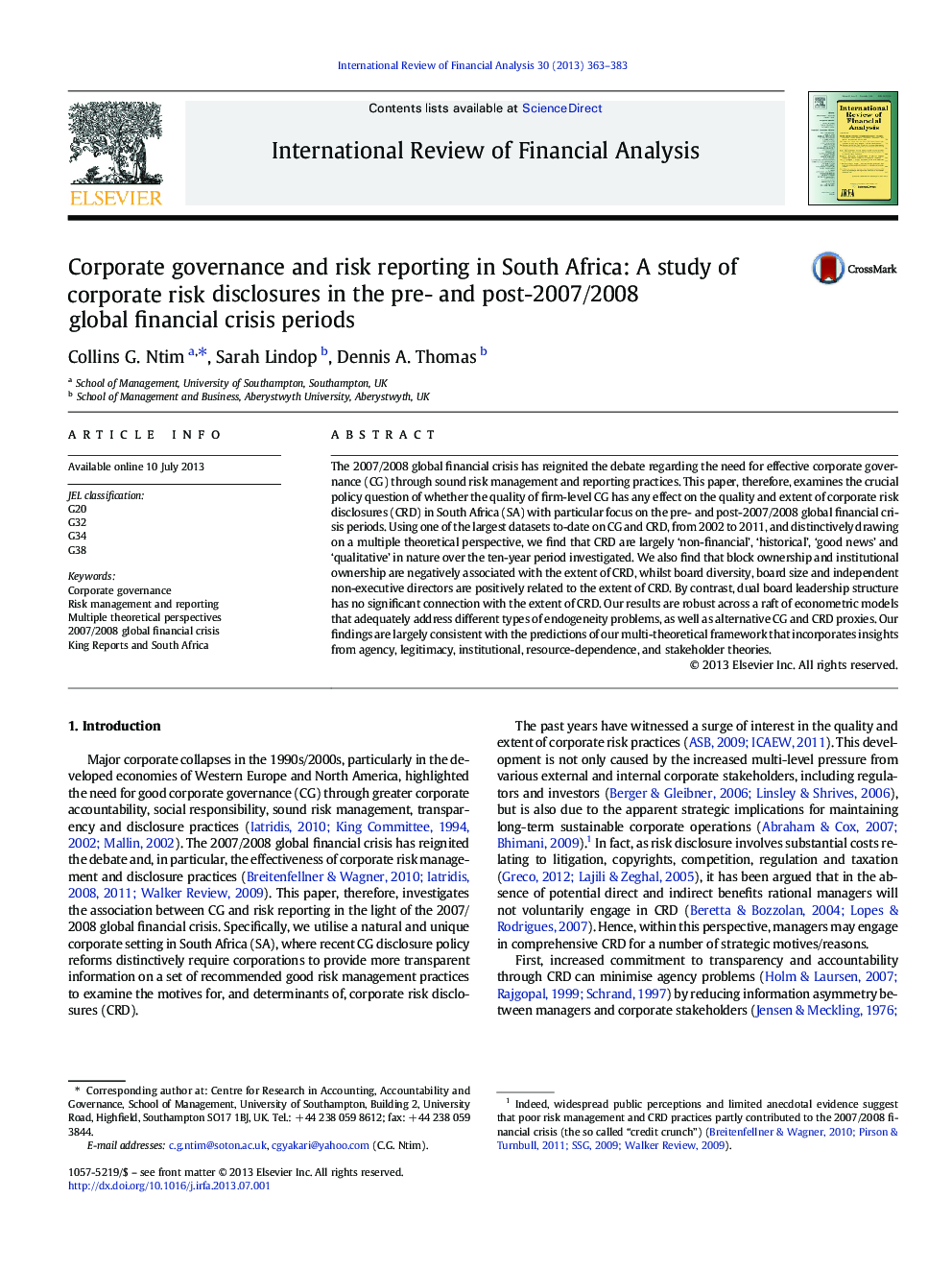| Article ID | Journal | Published Year | Pages | File Type |
|---|---|---|---|---|
| 5084968 | International Review of Financial Analysis | 2013 | 21 Pages |
â¢We examine the association between corporate governance and risk reporting.â¢We find that ownership and board features significantly drive risk reporting.â¢Our findings are consistent with the predictions of our multi-theoretical framework.
The 2007/2008 global financial crisis has reignited the debate regarding the need for effective corporate governance (CG) through sound risk management and reporting practices. This paper, therefore, examines the crucial policy question of whether the quality of firm-level CG has any effect on the quality and extent of corporate risk disclosures (CRD) in South Africa (SA) with particular focus on the pre- and post-2007/2008 global financial crisis periods. Using one of the largest datasets to-date on CG and CRD, from 2002 to 2011, and distinctively drawing on a multiple theoretical perspective, we find that CRD are largely 'non-financial', 'historical', 'good news' and 'qualitative' in nature over the ten-year period investigated. We also find that block ownership and institutional ownership are negatively associated with the extent of CRD, whilst board diversity, board size and independent non-executive directors are positively related to the extent of CRD. By contrast, dual board leadership structure has no significant connection with the extent of CRD. Our results are robust across a raft of econometric models that adequately address different types of endogeneity problems, as well as alternative CG and CRD proxies. Our findings are largely consistent with the predictions of our multi-theoretical framework that incorporates insights from agency, legitimacy, institutional, resource-dependence, and stakeholder theories.
